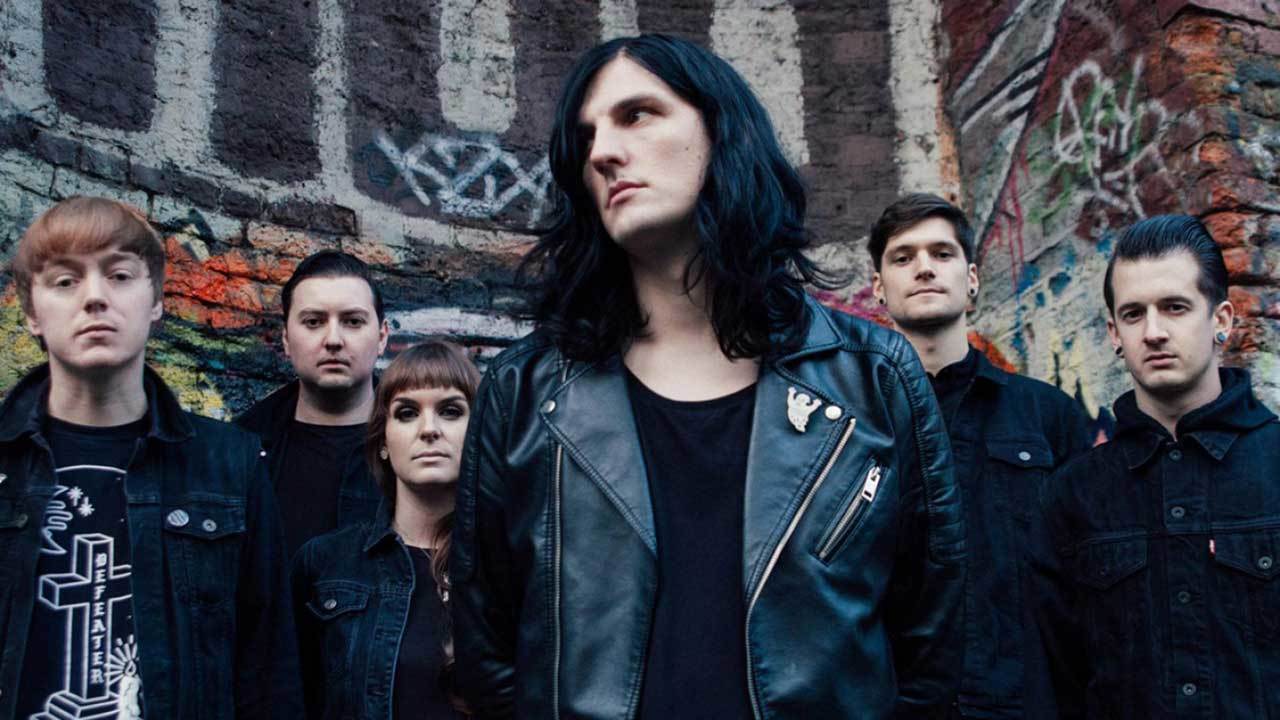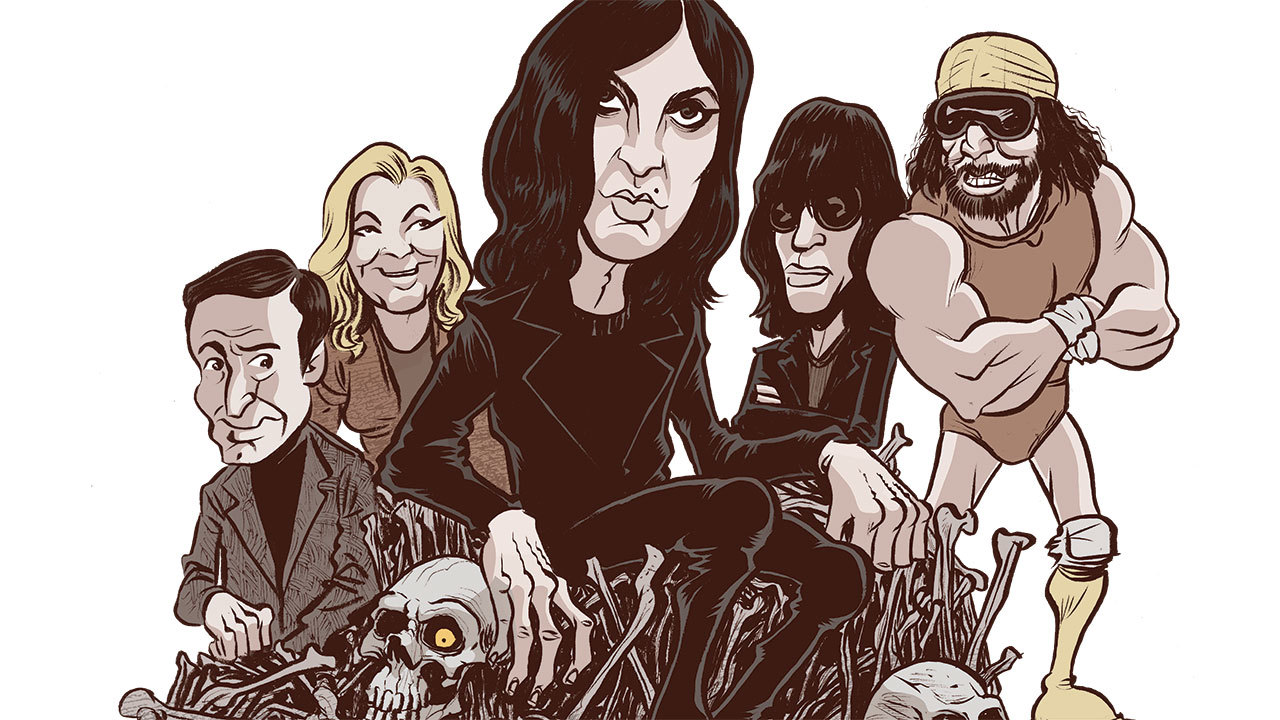Since I was a kid, I identified that I was different from a lot of the people around me. When I went to school my interests were just completely different from everybody else’s, which were sport and football and things like that, and I couldn’t get my head around it. It all lacked the pomp and flamboyance of what interested me. The only thing I had in common with most of them was that I liked professional wrestling, but I liked it for totally different reasons to the other kids. They liked the violence and the swear words and I liked it because I loved the idea of these big, tough men adopting these larger-than-life superhero characters.
So I already saw that disconnect from my peers, and it only became more obvious when I found punk music. I thought it was the most amazing thing in the world, and when you’re into something that much, it becomes everything. I couldn’t go with my Dad to see punk shows – it seemed a world away from what people at my school liked. It was a genuine alternative.
That’s what being a misfit is to me – allowing yourself to become part of a subculture. And I think being into a subculture trains you and teaches you so many other things that are crucial to your life. Going into the hardcore punk scene, you meet so many people that are so diverse. Yeah, we were all bound together by a love of music, but there are straight-edge kids and gruff punk kids that just want to get fucked-up. There are very heated political discussions within that scene, and it prepares you for the world at large. I never would have met these characters and heard all these various viewpoints staying in my little clique at school. Now, if I’m in a room with someone who is intensely passionate about something, even if it’s something I know nothing about, I can have a conversation with that person, because I know what it’s like to feel that level of passion, and I know there are plenty of people in the world that aren’t passionate about anything. So you should take pride in that. You might work in a job you hate and be thought of as the weirdo there, but who is really the weirdo? The people that work in a call centre and go home and do nothing except watch TV and get drunk, or the person that spends their time away from that job going to shows and taking an active part in a community?
And, as much as it can hurt, being singled out by those people can be a positive thing. I feel like I now know and empathise with people that are far more marginalised in society than me. This is really important, I think, because I was beaten up so many times when I was a kid. I got in so many fights just walking down the street because kids in tracksuits would take a dislike to me – because I was tall, with long black hair and wearing a Marilyn Manson t-shirt, and it was a horrifying experience. I developed a stutter and wouldn’t leave the house for a while because of it.

But what it has done for me is make me understand just how put-upon some people are. It’s given me such empathy. Knowing what it’s like to be singled out is one of the most important lessons you can learn.
And if I could go back and talk to myself at that age, when I didn’t even want to leave the house because I felt weird for the things I identified with, I’d have told myself that: “You need to go out and be yourself, like normal.” Because it is normal. At some point you realise that you have to be honest and true to yourself and that this kind of discrimination isn’t going to stop you. So you absolutely need to go out and go to shows and immerse yourself in what you love, and then it will get better.
I don’t have any friends from school, but I have met the most amazing people from my time in the DIY punk scene. It’s really important to remember that people who aren’t ‘weirdos’ or involved with any kind of subculture will never have that feeling you do.
You should almost feel sorry for them.
The Stranger EP is out now via Roadrunner. Creeper play Reading and Leeds in August
"We can change the world." An audience with Gojira - metal's most important band
